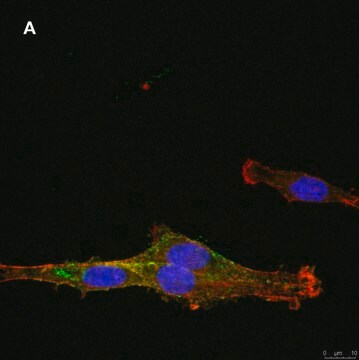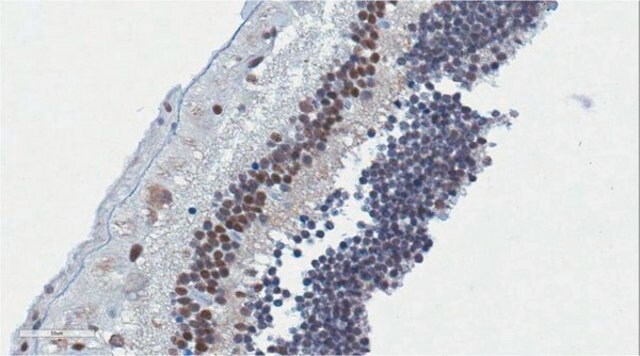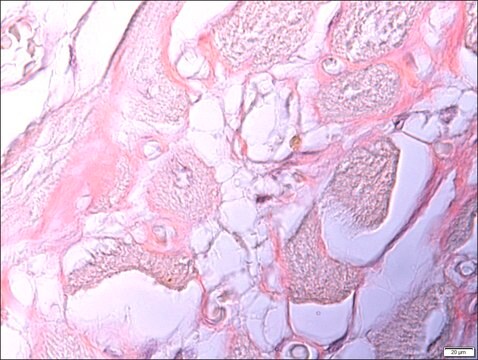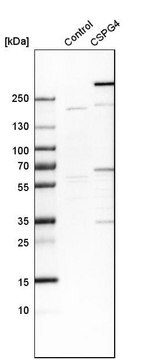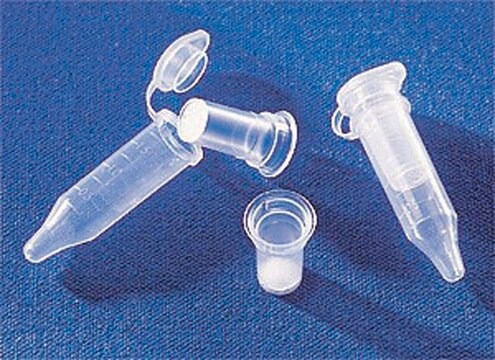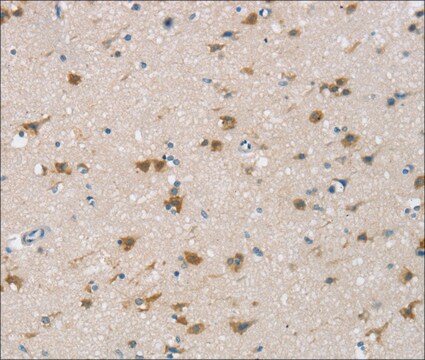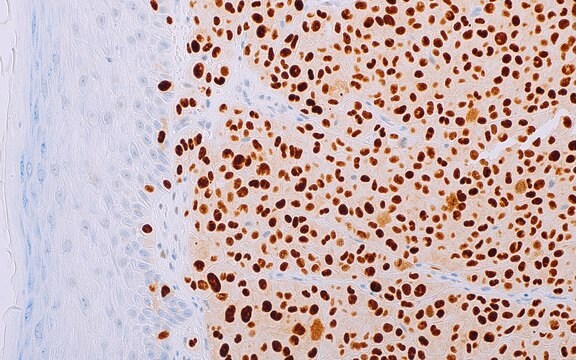MAB2029
Anti-Chondroitin Sulfate Proteoglycan Antibody, clone 9.2.27
clone 9.2.27, Chemicon®, from mouse
Synonym(s):
Anti-CSPG4A, Anti-MCSP, Anti-MCSPG, Anti-MEL-CSPG, Anti-MSK16, Anti-NG2
About This Item
Recommended Products
biological source
mouse
Quality Level
antibody form
purified immunoglobulin
antibody product type
primary antibodies
clone
9.2.27, monoclonal
species reactivity
human
manufacturer/tradename
Chemicon®
technique(s)
flow cytometry: suitable
immunofluorescence: suitable
immunoprecipitation (IP): suitable
isotype
IgG2a
NCBI accession no.
UniProt accession no.
shipped in
wet ice
target post-translational modification
unmodified
Gene Information
human ... CSPG4(1464)
Related Categories
Specificity
Immunogen
Application
Immunoelectron microscopy (Bumoi et al., 1984)
Immunoprecipitation: 1μg/10E6 cells (Bumoi et al., 1984; Morgan et al., 1981)
FACS analysis: 1-2μg/10E6 cells
Functional block of melanoma cell spreading (Morgan et al., 1981), glioma cell proliferation3 and tumor growth in nude mice (Morgan et al., 1981; Schrappe et al., 1992).
Optimal working dilutions must be determined by end user.
Cell Structure
ECM Proteins
Physical form
Storage and Stability
Other Notes
Legal Information
Disclaimer
Not finding the right product?
Try our Product Selector Tool.
Storage Class Code
10 - Combustible liquids
WGK
WGK 2
Flash Point(F)
Not applicable
Flash Point(C)
Not applicable
Certificates of Analysis (COA)
Search for Certificates of Analysis (COA) by entering the products Lot/Batch Number. Lot and Batch Numbers can be found on a product’s label following the words ‘Lot’ or ‘Batch’.
Already Own This Product?
Find documentation for the products that you have recently purchased in the Document Library.
Our team of scientists has experience in all areas of research including Life Science, Material Science, Chemical Synthesis, Chromatography, Analytical and many others.
Contact Technical Service